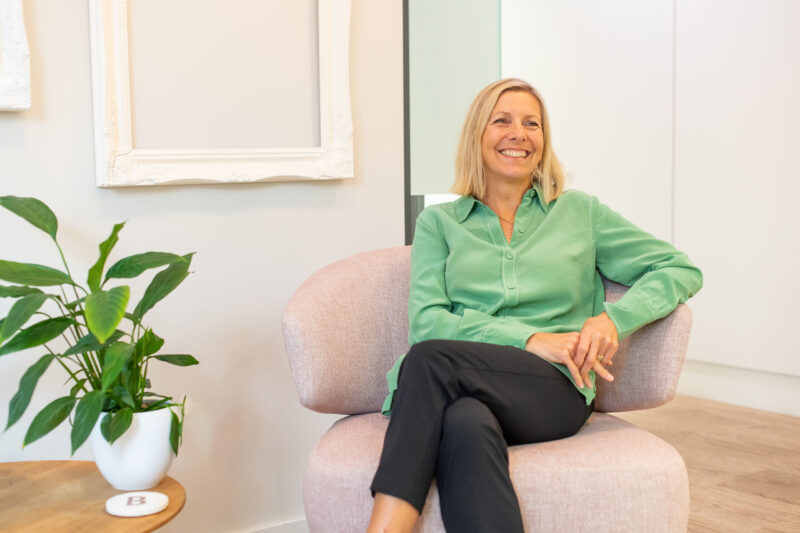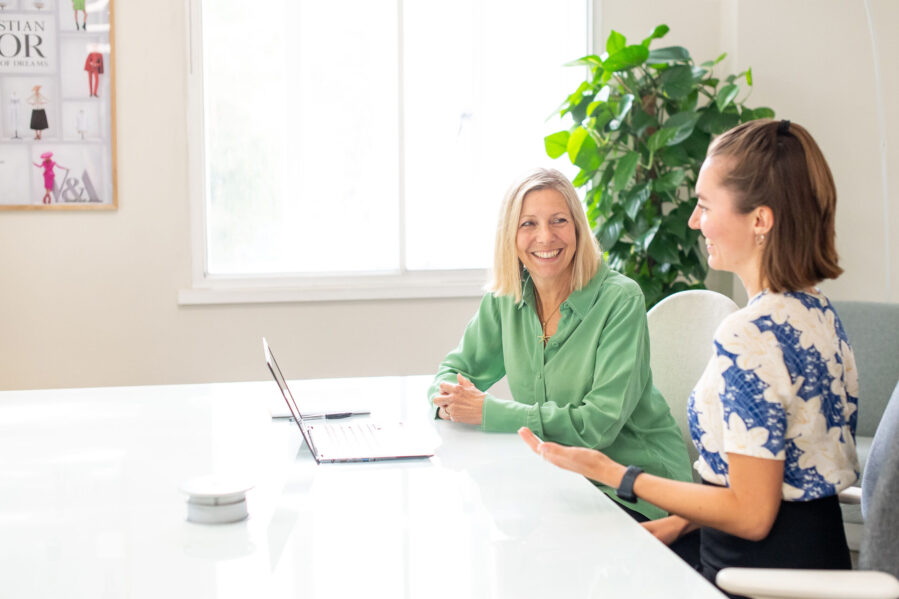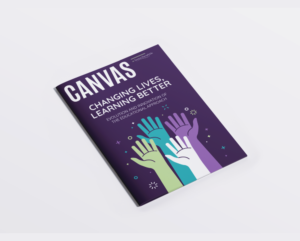
We are delighted to introduce Emma Hattersley, the new Co-Head of our Schools Practice group. Emma joins us from leading Godolphin School, where she has been Head since January 2014. A hugely talented educational leader and current School Governor, Emma brings a wealth of experience to the team and a great deal of interesting insight and ambition for helping to evolve and enhance the education sector.
You are new to executive search, but certainly not to leadership and education, how can your experience bring different perspective to candidates and clients?
My role in education is so much about people – the key participants who make education function. I think the skill of being able to put someone at their ease and be relatable whether that be speaking to a small child or a parent, a teacher or the Chair of Governors is extremely valuable. I have been able to see how these different stakeholders fit into the organisation and what is important to them and this will undoubtedly be of value in my new role.
I’ve seen things from the other side of the fence too, as an interviewee myself or an interviewer. I’ve had to ring up unsuccessful applicants for roles at my school. I have been able to see it from both sides and I think the element of empathy there is going to be very important.
The role of the trustee is so fundamental to the strategic direction of a school, and I understand the deep care and dedication that this role plays in our children’s educational futures. I’ve been a school governor in a number of different schools – boarding and day, co-ed and single sex and I’m currently a governor at Fairley House in London and Port Regis in Dorset. When a school is anxious about appointing its next head or bursar, I will be able to understand it from their perspective.
The importance of up-to- date knowledge of the sector as a whole is really critical and the direction of travel particularly in these times of great change. I am very committed to keeping up that knowledge and believe that this will also benefit clients coming to us.
What in your view makes the best leader?
I don’t believe that there’s an archetypal ‘best leader’. I’ve read countless books over the years about leadership. Ultimately, I think you have to ‘trust your gut’. I’ve worked with and for some really excellent leaders during my working life. I think they all had some things in common:
Authenticity – you can only be yourself, otherwise it doesn’t work, and that is where executive search is really important – matching the right leader to the culture and environment of the organisation.
Courage – the need to be brave and bold and sometimes make the unpopular decisions that you know are in the organisation’s best interest.
Empathy – empathetic leadership is the way forward in my view. Being an inclusive, not exclusive leader. Yes, one has to be tough sometimes, but you also have to take people with you, listen to them and support them. The best leaders do more listening than they do talking!
In essence, the best leaders surround themselves with excellent people, who can think differently and challenge, to create formidable teams that work together to move their organisations forward. Being inclusive and not exclusive as a leader is key. The ability to capitalise on the raw material and talent of one’s organization and thoroughly empowering it to the best of your ability is a key quality for a leader.
“The best leaders surround themselves with excellent people, who can think differently and challenge, to create formidable teams that work together to move their organisations forward.”

What is it about the Schools’ sector that motivates and inspires you?
I love working with young people to help them thrive and develop and give them the best possible life chances. You can do this if you have the best leaders in our schools who can help to drive change and shape education to enable our children to achieve their full potential. That is what I aim to find in my new role.
It’s also very rewarding helping those who aspire to lead to take the next steps and to encourage and affirm their talents and leadership qualities. I have experienced that in my own organisation to encourage people at all levels and to help people fulfil their potential – I’ve done this as a Head and as a Governor.
What do you think will be the key questions or themes for education, and particularly the Schools’ sector in the short to medium term?
Top of the list at the moment for all schools is likely to be how to balance the books and still provide as excellent an experience as possible for their pupils. The question at the moment really is: are you spending money on teaching or heating?! That’s the harsh reality of the situation currently.
I think there is a real question surrounding whether we have an education system which is fit for purpose. The pandemic has highlighted deep inequality within the sector – north to south with recent exam results being just one example.
The curriculum needs to be reviewed urgently – the Times Education Commission published earlier this year makes a good case for this and speaks a lot of sense. We need to think with a 10-15 year plan to determine educational policy, rather than in the 1–5 year cycles depending on the Government of the day. Our curriculum does still feel quite staid, and we need to move this forward and think about many developing areas. For example, Artificial Intelligence, skills for the workplace, and thinking critically, being innovative and responding to climate change. These all need to be central to shaping the curriculum. This is a changed world and I am not sure yet that the sector is open enough to that. Perhaps we will see some much-needed reform of assessment but that must be in the broader context of curriculum change.
We cannot ignore the challenge of mental health issues which now affect 1 in 6 children. The next few years really do need to address this and help young people build resilience. Young people are anxious about their futures in so many different ways for example, whether to go to university or not, what career and job choices they should make, and whether they will be able to afford to buy a house. We do need to build in the resilience to deal with challenge and change, but we also need to be aware that there are those who are really struggling too.
“The importance of up-to- date knowledge of the sector as a whole is really critical and the direction of travel particularly in these times of great change.”
Lastly, and very importantly is the shortage of teachers, with record numbers leaving the profession. Somehow, we need to regain the respect that teachers deserve and highlight the fact that it should be a highly regarded profession in this country like it is in the rest of the world.
We should be looking at how we train, attract, and retain our valuable teachers at all levels of the profession. Heads are leaving but also are many of those relatively new to the profession. We, as a sector, need to cast our net more widely – there are lots of fantastic international schools and some of those teachers want to return to the UK. It would be great if we could increase the diversity of the applicant pool and encourage more women to step up too. I see that as a real opportunity at Saxton Bampfylde to grow and support the widening and deepening of this pool.

What have you been most proud of in your professional career to date?
I have to be really proud of reaching the top of the career ladder in education and being a Head. I am proud of that as a woman and also to have enabled, empowered and encouraged other women. I’m not ashamed to admit to being an ambitious person and I’ve always been ambitious for the people and the organisations in which I have worked and lead. Being part of developing people within the schools I have worked has been fulfilling.
I am really proud to have seen my own school achieve national recognition in awards and leaving as it achieves its best ever examination results. I’m proud of being able to play my part in a small way in shaping my school’s future to enable those young people to achieve of their best. It’s a real privilege working with young people and I am delighted that my new role still keeps me in touch with the education sector. We need great leaders for our schools now more than ever.
With the choice – pop on a podcast or bury your nose in a book? And please share any good recommendations!
I actually like a bit of both. If I’m exercising I quite like a good story to listen to – preferably historical fiction. I’ve recently finished the Gudrun series on BBC Sounds. It’s an 11th-century Viking epic of love, revenge and faith, set in Iceland and starring the original Nordic heroine, Gudrun. They are short episodes which is handy too – I can thoroughly recommend. Great light entertainment while exercising.
My reading is quite eclectic. It includes books about education, teenage behaviour and books about business and gardening – the list goes on really.
A book that I read just before the pandemic has also stayed with me and is one I often recommend to others. The ‘Hare with the Amber Eyes’ by Edmund de Waal is a book I just couldn’t put down. Again historical and biographical but incredibly moving – about de Waal’s own family and the story of a collection of little Japanese ‘netsuke’ that get passed down from one generation to the next. It’s really worth a read.
